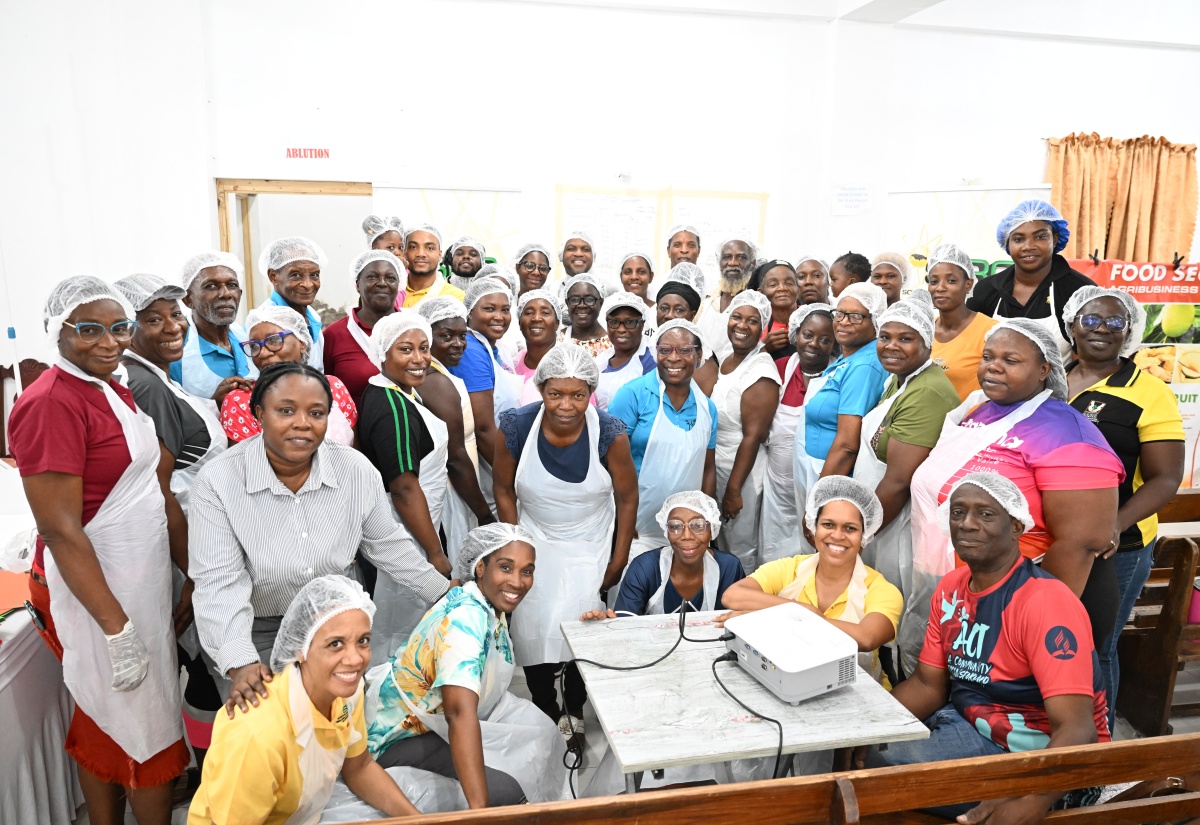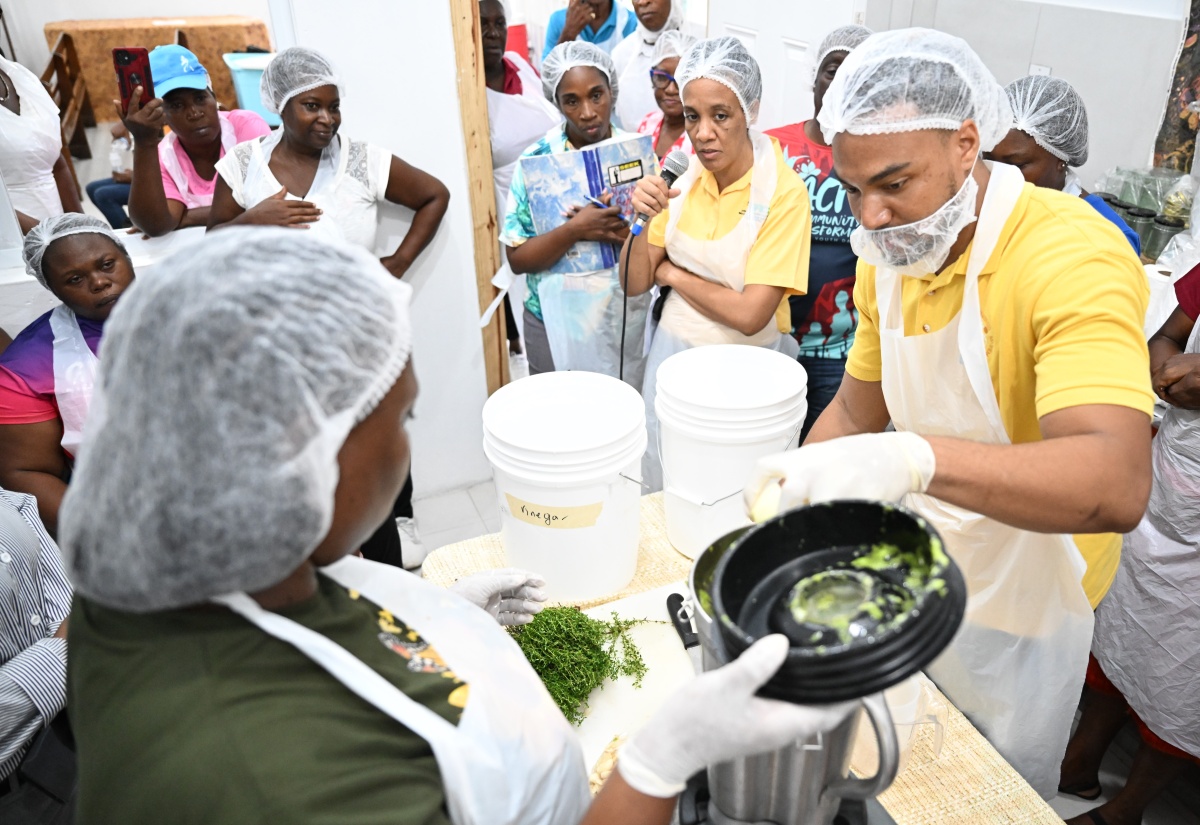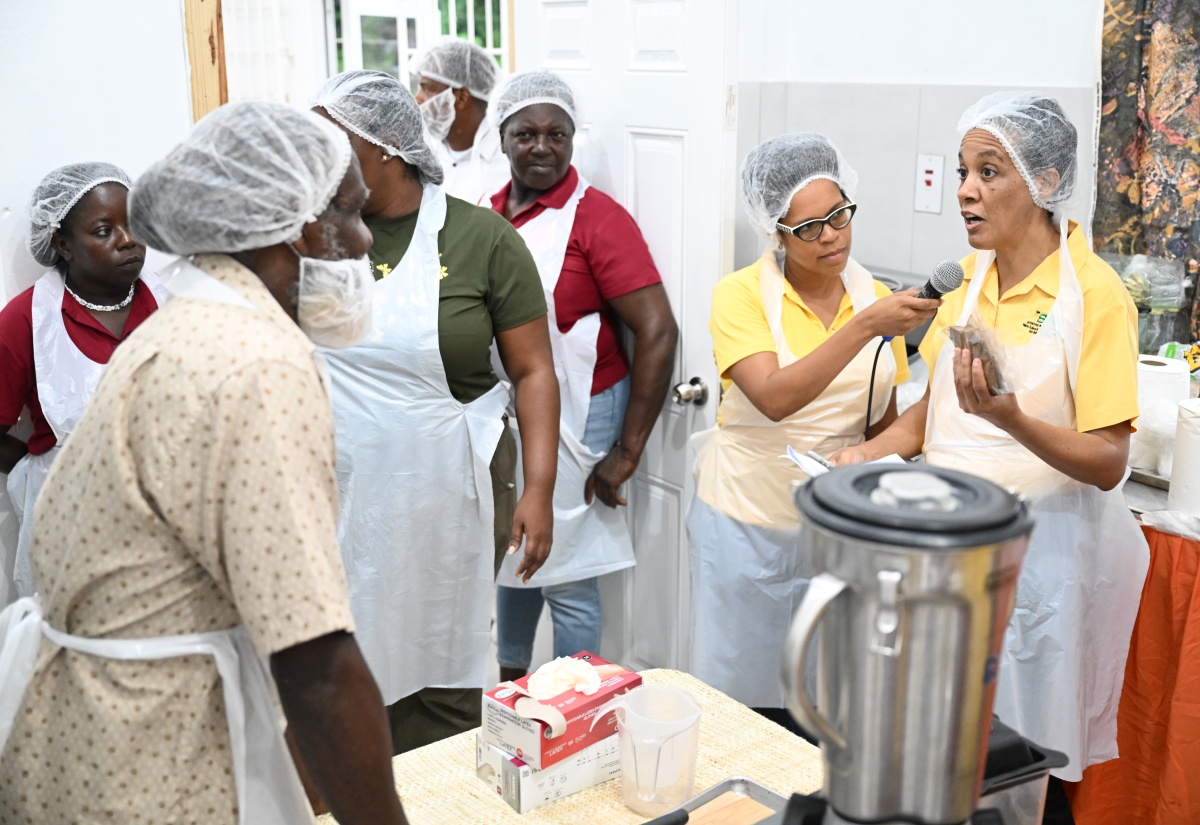Farmers Urged to Seek Knowledge in Agro-Processing
By: , October 21, 2025The Full Story
Farmers in St. Ann are calling on their colleagues across Jamaica to seek knowledge and upskill their talent in agro-processing, as a means to create value-added products from their produce.
The appeal comes as farmers gathered at the Claremont Seventh-day Adventist Church in the parish on October 16, for a jerk seasoning processing workshop, organised by the Scientific Research Council (SRC), in collaboration with Rural Agricultural Development Authority (RADA).
The farmers were trained in the commercial principles of transforming raw produce into marketable value-added goods with lengthy shelf life.
Farmer, Kayanne Cole, told JIS News that such events are imperative, particularly among elderly farmers who may not be familiar with the new technologies and processing methods that could save and monetise their crops.
She pointed out that severe waste of produce is plaguing the area, due to a lack of storage facilities and an over-reliance on traditional market buyers.
“So, it is great when you have somebody that comes in to show them how they can do different aspects of farming. It’s not just what they [sow and reap] but also the agro-processing aspect of the farming. It is very good for farmers like those,” Ms. Cole outlined.
The farmer said she attended the workshop specifically to learn about agro-processing techniques for her pepper crops.
The workshop has now provided her with the practical knowledge she needed, according to her.
“I’ve been having some challenges with my pepper, and I wanted to step away from just planting the pepper, picking the fruit and selling, but also to go into the agro processing. So, it was very educating to me, and I’ve learned a lot today,” Ms. Cole explained.
She urged farmers to actively research online, seek out available funding and participate in workshops offered by RADA and other agencies.
Farmer, Starrette Dobson, said that farmers need to organise themselves and seek training from bodies like the SRC.
He pointed out that while raw produce spoils easily, value-added products like breadfruit flour, pepper sauce, chutney, and jerk seasoning can have a shelf life exceeding a year.
“Today’s event was very beneficial to me because one of the things that happened is that we (farmers) are losing, sometimes, a lot of the stuff that we plant, and if we can really bring it to a value-added product, then this is the workshop that will help us to do that,” Mr. Dobson underscored.
Another farmer, Maurice Williams, said he gained significant new knowledge, particularly in creating jerk seasoning, which was new to him.
The event was a collaboration between SRC and RADA. The entities specifically targeted pepper farmers, and taught them how to use their scallion, onions and Scotch bonnet peppers to create products that could be sold commercially.
Community Development Coordinator at the SRC, Yanique Rodgers, indicated that the workshop taught the men and women commercial food-processing principles.
This is to enable them to make and sell their own products within their communities, at retail outlets, supermarkets, and even for export, she said.
“We have done work with other community groups across Jamaica. We’ve done work also with the deaf community and with the incarcerated community, as well, in the past,” Ms. Rodgers noted.
“We did work recently with the Watermount community in St. Catherine where we actually taught them how to plant pineapples that were generated by tissue culture. Also, with the Lister Mair/Gilby High School for the Deaf in Kingston, we trained them how to make jams and jellies,” she added.
The SRC promotes these training opportunities continuously through its social media platforms and partnerships with government agencies.






